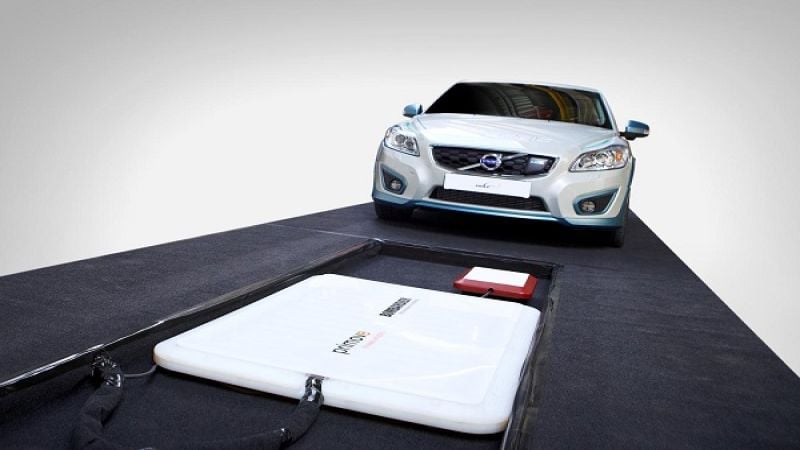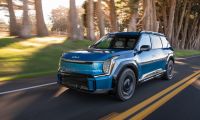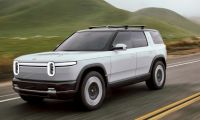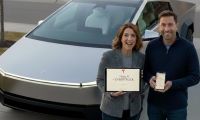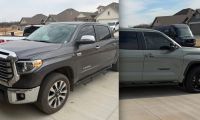Volvo and some partners have completed a successful study of a way to wirelessly charge electric cars. Using an electromagnetic field the system can inductively charge cars such as the Volvo C30 Electric car. Instead of being attached to the electrical grid in a garage or at a public charging station with a power cord, the system could allow for charging in less time, and with far less hassle.
Volvo partnered with Bombardier Transportation, the Company Inverto, and the coachbuilder Van to complete the study, which was paid for by the taxpayers of the Flanders region in Belgium. Both the Volvo C30 and buses were part of the vehicle fleet studied. “The tests demonstrated that our Volvo C30 Electric can be fully charged without a power cable in about two and a half hours. In parallel with this, we have also conducted research into slow and regular charging…” Said Lennart Stegland, vice president, electric propulsion system at Volvo Car Group. He went to add “Inductive charging has great potential. Cordless technology is a comfortable and effective way to conveniently transfer energy. The study also indicates that it is safe. There is not yet any common standard for inductive charging. We will continue our research and evaluate the feasibility of the technology in our hybrid and electric car projects.”
If a standard were to emerge, and hopes for that should be tempered by the decades long struggle to standardize wired charging, such systems might be easy to install in parking lots. Thinking further, systems that involve such charging might even migrate to roadway areas where drivers commonly idle or drive slowly. For example, at intersections, toll booths, and school zones. Stegland pointed out that inductive charging is so simple that it can be made automatic. Presently, cell phone and other types of battery powered devices use the technology.
In prior stories we have reported on a similar static system proposed by Nissan. Our electric vehicle expert and reporter, David Herron, also covered a system in development by the Oak Ridge national Laboratory. That system is already thinking ahead to high speed wireless charging and is planning to have a system that can be adapted to all existing electric vehicles.
Set as google preferred source


